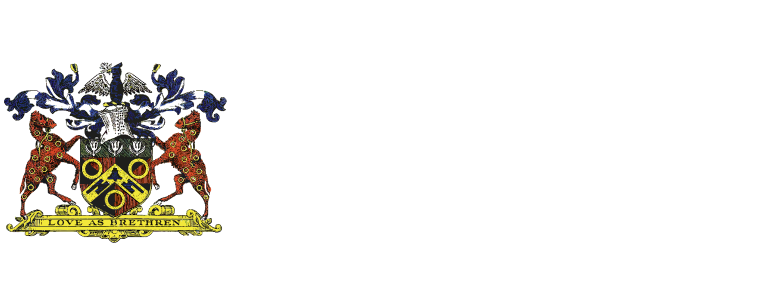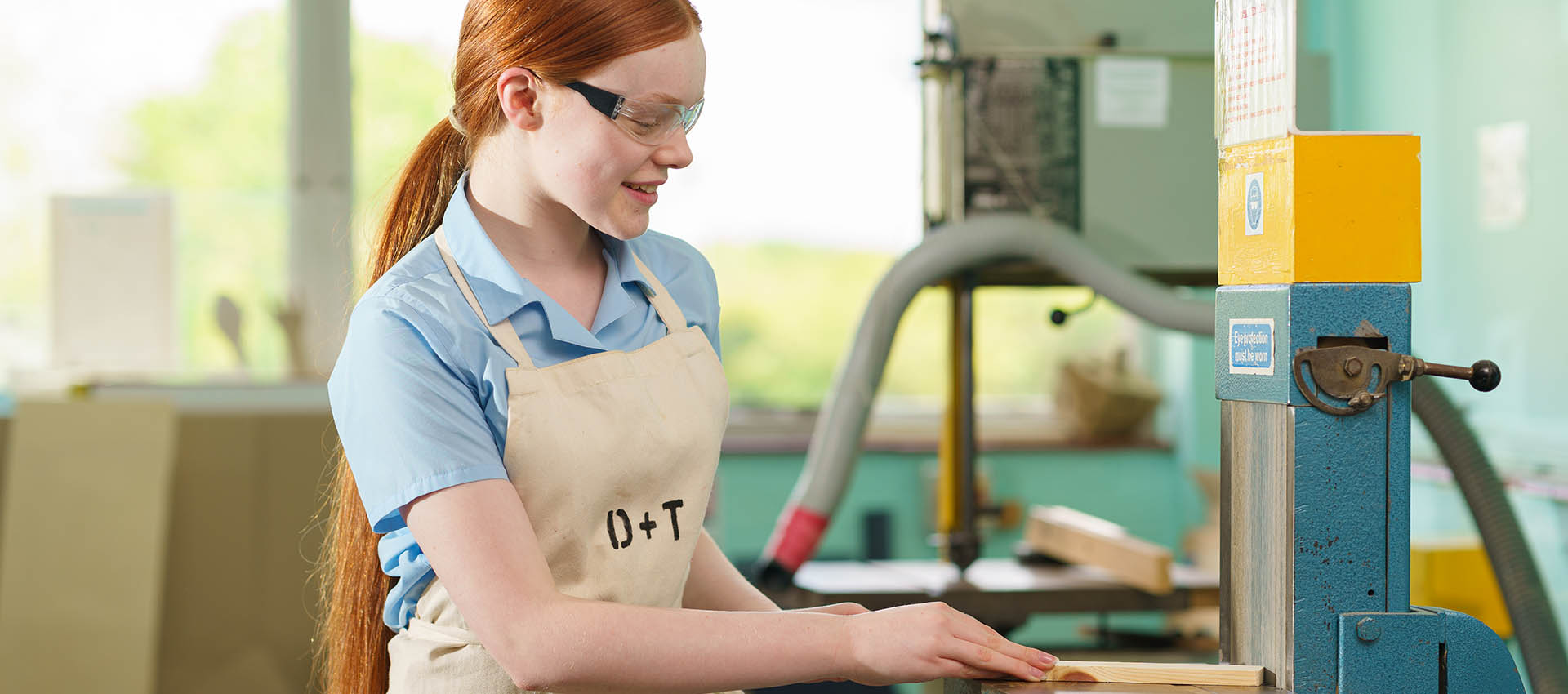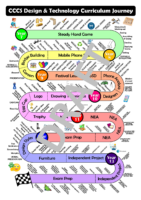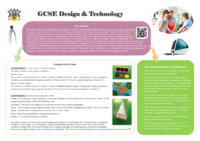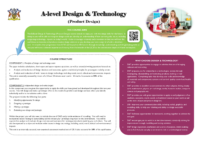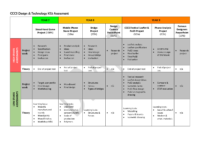Design & Technology
“The best way to predict the future is to design it” – American architect Richard Buckminster-Fuller. This quote has become the ethos of design & technology at CCCS and is echoed in the work that the students produce. Design & technology is all around us, every product or service that we use has been designed in some way. It is designers and engineers who make the world what it is today.
Design & Technology is not just a ‘creative’ subject it’s cross-curricular and goes hand-in-hand with other subjects including science, mathematics, art and design, computing, the humanities and economics.
At CCCS Design and Technology is one of the subjects that students enjoy the most. Mainly because they have the opportunity to have fun in a different classroom environment, whilst completing activities which involve analysing, designing, modelling, manufacturing and evaluating a range of different products. They also use a range of different tools, equipment and machinery including Computer Aided Design (CAD) and Computer Aided Manufacture (CAM).
The department is housed within the design technology block consisting of three workshops and a computer suite with 16 computers. In addition to the standard machines found in design technology workshops the department also has an A0 scale full-colour printer, laser cutter and 3D printer.
Course description
The Design & Technology staff are confident that the curriculum offers students a variety of experiences as mentioned below. But more detailed information about the CCCS Design & Technology Curriculum Journey can be found in the document attached.
KS3
In years 7, 8 & 9, students study Design & Technology all year, seeing their teachers once per week from September through to July.
All KS3 projects cover the subject areas of; Timbers, Polymers and Papers & boards, and although all of them have a practical outcome, they are underpinned with the theoretical knowledge and understanding of Design & Technology. In addition students investigate famous designers and design careers which assists them in the GCSE options process.
KS4
Students in years 10 & 11, attend 5 lessons per fortnight over the two years, studying the Pearson EdExcel Design & Technology course. This course was chosen because it enables students to understand and apply iterative design processes through which they explore, create and evaluate a range of outcomes. Students use their creativity and imagination to design and make prototypes that cover the material areas including Polymers, Timbers, Metals, Papers & boards, Fibres & textiles and Systems. Students are also expected to apply their knowledge from other subjects, including mathematics, science, art and design, computing, business and the humanities to solve real and relevant problems, considering their own and others’ needs, wants and values.
KS5
Students have the opportunity to continue their study of Design & Technology through the Pearson EdExcel A-level Product Design course. This course was chosen because it continues on from the GCSE and further enhances the students knowledge and skills working with a choice of Polymers, Timbers, Metals, Papers & boards, Fibres & textiles and Systems. It is structured over 10 lessons per fortnight for the two years and the student’s complete projects which continue to equip them with design skills for the future. They begin to be able to recognise design needs and develop an understanding of how current global issues, including integrating technology, impacts on today’s world. Creativity and innovation is encouraged so that the students have the confidence to innovate and produce creative design solutions as they develop their own design brief with a client.
What will you learn about?
- Materials and components; their uses, properties and performance characteristics
- Manufacturing and production processes including the application of digital technologies
- Factors influencing product development
- Project planning
- Health and Safety
- Sustainable design
- The integration and use of control systems in design solutions
How will you be assessed?
Throughout the year students work will be assessed and their marks recorded on Go4Schools inline with assessment schedule below. All KS3 project work has a weighting of 50% which mirrors that of the GCSE and A-level courses. The remaining 50% comes from the end of project test which also mirrors the final GCSE and A-level exams. Together the project work and the end of year form the high stakes assessment. In addition students will complete low stakes assessment tasks which also monitor their progress throughout the projects.
At GCSE and A-level the project work that students complete, prior to starting their Non-Examined Assessment (NEA) or Independent Design & Make Project (IDMP), forms their low stakes assessment, along with topic tests. The high stakes assessments consist of the NEA or IDMP and an end of year exam or mock exam both with equal weighting of 50%.
To be successful in this subject students will need to be good at and enjoy:
- Lateral thinking – problem solving through an indirect and creative approach that uses reasoning that’s not immediately obvious and involves ideas that may not be obtained by step-by-step logic
- Thinking outside the box – thinking differently or from a new perspective
- Analysing products looking at their strengths and weaknesses leading on to further improvements
- Designing using an Iterative approach – the process of continual improvement, of a concept, prototype, design or product
- Developing and applying their knowledge and understanding gained in other subjects such as; maths, science, humanities, business etc. to design and produce successful products
- Learning about design and past designers/engineers/inventors who have influenced the world in which we live
- Demonstrate their ideas using hand sketching techniques as well as CAD including working with a variety of materials and practical tools and equipment to realise a prototype product
Progression routes & career opportunities
Students who study Design & technology could go to follow a range of subjects at degree level including Product Design, Design Management, Automotive Design, Architecture and Engineering. Other students may choose to take the Apprenticeship route seeking work with the engineering and design sectors.
Homework/extended learning
Useful websites:
Technologystudent – www.technologystudent.com
BBC Bitesize – www.bbc.com/bitesize/subjects/zvg4d2p
Design & Technology on the web – www.design-technology.info
Design Museum – www.designmuseum.org/design#

